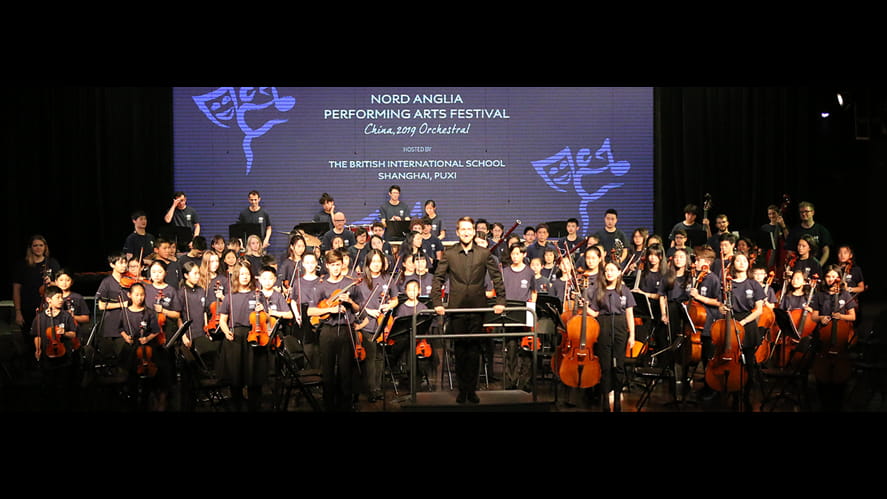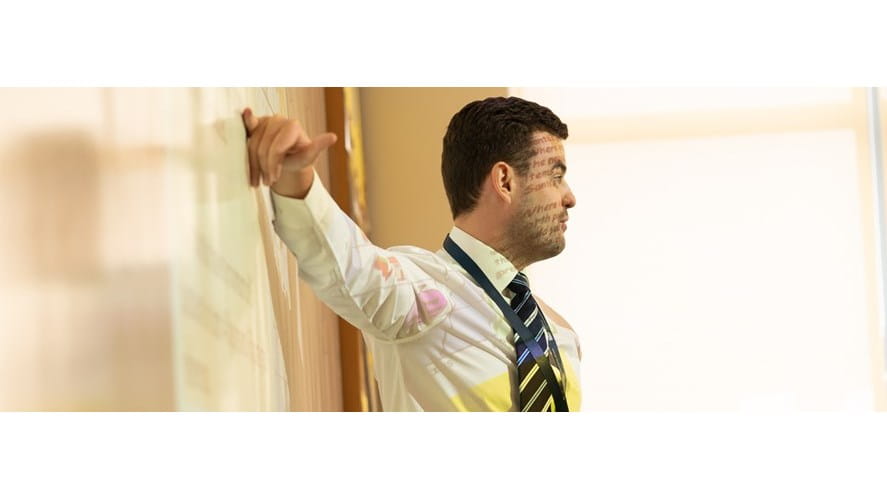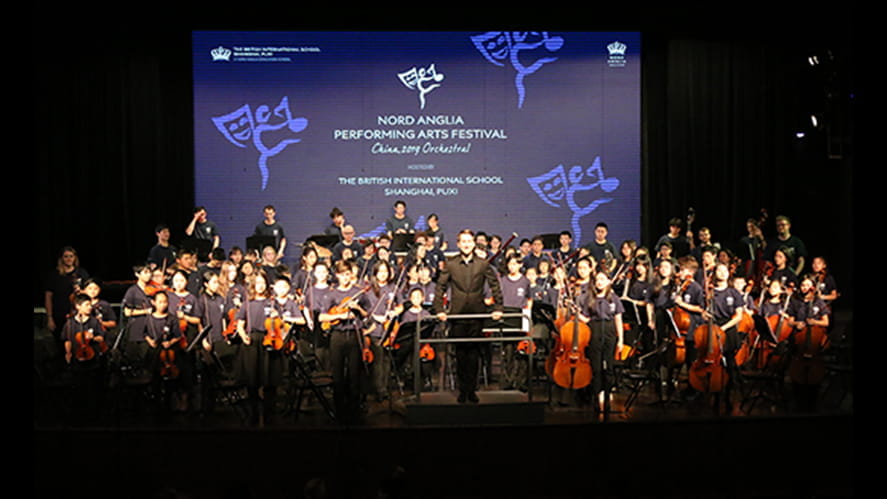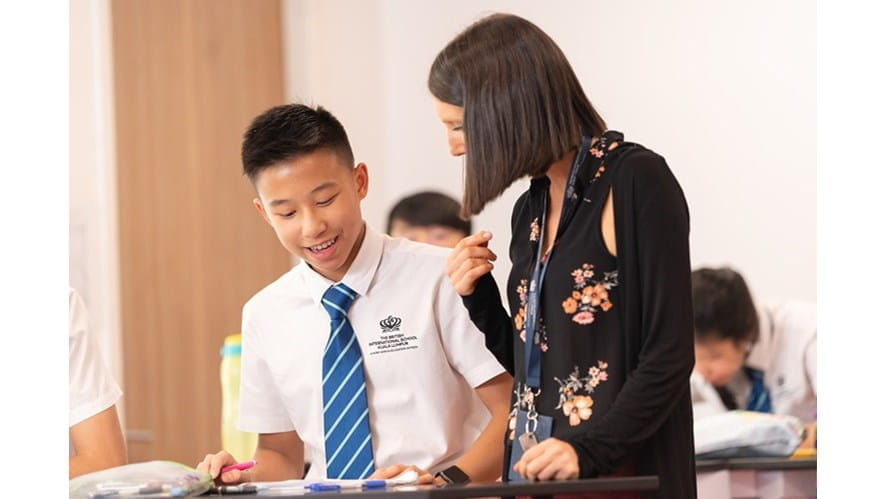Back to the Classics
Students learn far more playing in an orchestra than just learning to perfect the sounds of the music on their own.

Students learn far more playing in an orchestra than just learning to perfect the sounds of the music on their own.
They played for 12 hours a day until their fingers were sore, but their spirits were high.
For many students attending Nord Anglia’s China region performing arts festival it was the first time they were part of a large symphony orchestra led by a professional conductor. Students said rehearsals in the lead up to the final concert were both exciting and intense.

“Sometimes I forgot to look at the conductor and I sped up [when playing the snare drum],” Year 7 student and percussionist Matthew Yick from host school British International School Shanghai Puxi, said.
“Some of the overtures went really fast and I had to push myself to keep up with the tempo,” Year 8 student and trombone player Bryant Cheng from Nord Anglia International School Hong Kong said.
BISS Puxi Head of Music Stephen Morris said the long rehearsals proved to be a powerful learning experience for students because they saw how their individual practice at school contributed to the creation of a unified ensemble including 90 students from nine schools. The ability to scale from one to several schools as part of global premium schools group Nord Anglia Education enabled students to have a transformative experience.

“Suddenly this jigsaw started to come together. It made sense,” Mr Morris said. “We wanted students to have a real-life, contextual experience working with a professional conductor. One school cannot offer that experience on their own.”
The festival’s regional format is part of a new initiative by NAE to create engaging and ambitious learning in the performing arts by bringing students from schools in each region closer to the work being done through its collaboration with The Juilliard School, a world-leader in performing arts education. Similar, extraordinary opportunities are available in sports, debate and STEAM learning through its collaborations with the Massachusetts Institute of Technology and UNICEF.
Through the group’s collaboration with Juilliard, BISS Puxi hosted a three-day orchestral festival early last month conducted by Juilliard Pre-College Faculty conductor Dr Oliver Hagen. The event included several performance opportunities, as well as workshops and masterclasses to further engage and inspire students to deepen their knowledge, understanding, skills and passion for orchestral music.
Dr Hagen said the number of children who attended was “spectacular”.
“I love conducting and teaching students. Any opportunity where I get to do that is great,” Dr Hagen said. “At any level there is always room for improvement in understanding how music works: especially phrasing and orchestration. Getting balance right is also a universal issue, even for professional orchestras.”
However, the nature and scale of the regional orchestral event enabled students to cultivate far more than musicianship. While Bryant and Matthew’s issues with speed and synchronicity taught them how to build on their talent and technique, it also brought up the importance of preparing before an event and showing commitment to playing their part. Matthew said he understood the significance of developing these skills during rehearsals with Dr Hagen.
“He has the ability to spot mistakes, even really small ones! I improved a lot under his guidance. After this experience I will look at Mr Morris during orchestra rehearsals,” Matthew said.
Dr Hagen said students need to know how to listen to a recording of the piece they’re playing and look at the full score to be able to see what other people are doing.
“This needs to be done before rehearsal,” Dr Hagen said.
Dr Hagen said he spent time teaching students how to count, including how to make entrances on their own and read gestures from the conductor. He also highlighted how learning music wasn’t just for music’s sake.
“We were doing a lot of counting in rehearsal and one person said: ‘is this a math’s lesson now?’ I said ‘yeah’; at one point, music might be a foreign language lesson when you look at the instructions a composer wrote to tell you how to play a piece of music. It could also be a history lesson when you study the context in which it was written,” Dr Hagen said.
Students picked up several soft skills too, including confidence, trust and teamwork — especially when they were confronted with playing a piece of music with students they didn’t know, Mr Morris said.
“As a musician you tend to be self-critical and self-reflective, conscious of every sound you’re producing, and suddenly you have to play with someone you’ve just met. It makes you feel vulnerable, because you’ve got to perform at concert volume with these people… But the value of all of that is learned through what’s achieved,” Mr Morris said.







